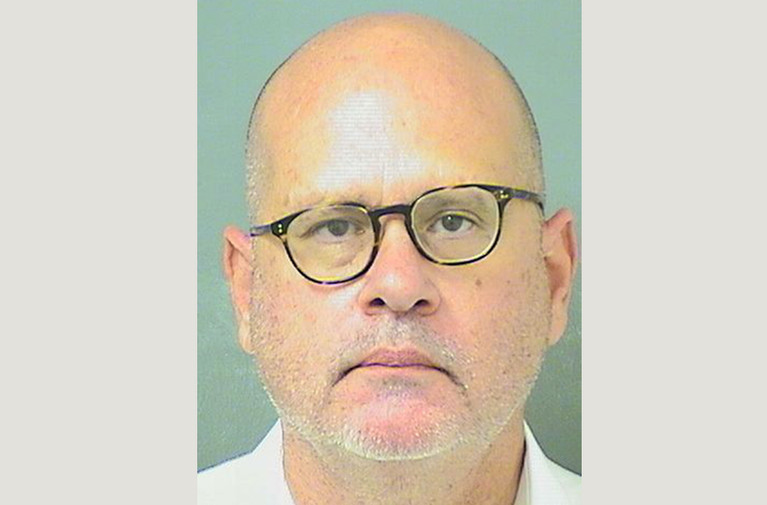Fort Lauderdale Attorney Latest in Wave of Lawyers Tied to Jail Drug Smuggling
A Fort Lauderdale attorney has become the latest figure in a disturbing trend of lawyers implicated in smuggling drugs into Florida jails, as reported by sources like WPTV and Law&Crime. David Casals, a 56-year-old defense attorney, was arrested on January 7, 2022, for allegedly attempting to smuggle cocaine-soaked papers into the Palm Beach County jail, disguised as legal documents. This case, alongside similar incidents involving other Florida attorneys, highlights a growing issue of contraband infiltrating correctional facilities through legal channels, raising concerns for law enforcement, the legal profession, and the public.
The Case: David Casals’ Arrest
On October 24, 2021, Casals visited the West Detention Center in Belle Glade, intending to meet three inmates. During a routine search, Deputy Jessica Bryant discovered 37 sheets of paper in a manila folder, featuring Bible quotes and photos of an unknown woman, with a cover sheet mimicking a Spanish-to-English translation for a murder suspect, Pedro Concepcion. The papers tested positive for cocaine, leading to Casals’ arrest on January 7, 2022, on felony charges of trafficking cocaine, delivery of cocaine, and introducing contraband into a county facility.
Casals, who turned himself in and was released on a $58,000 bond, pleaded not guilty through his attorney, Michael Salnick. Security footage revealed Casals met a fourth inmate not listed on his visitation report, further raising suspicions. A Palm Beach County Sheriff’s Office affidavit cites cooperating inmates who claimed that, after tightened security following deputy arrests in 2021, attorneys became a primary conduit for smuggling drugs via laced papers.
Broader Trend: Attorneys as Conduits
Casals’ case is part of a wider wave of attorney-related smuggling in Florida:
- Nathan Williams (Jacksonville): Arrested on January 5, 2025, for smuggling ADB-PINACA (synthetic marijuana, or “K2”) into Duval County Jail via drug-soaked paperwork, as part of “Operation Stamp Collection.” Williams faced eight felony charges, including conspiracy and unlawful use of communication devices, and was released on bond.
- Systemic Issue: The Palm Beach County affidavit notes that inmates reported attorneys being paid to smuggle contraband after deputy crackdowns, with drugs disguised as legal documents to exploit attorney-client visitation privileges. Jacksonville’s Sheriff’s Office reported a 61% reduction in jail overdoses after targeting such schemes.
Boca Raton attorney Doug Rudman, a former prosecutor, told WPTV that financial pressures may drive some lawyers to break the law, stating, “You’re going to find lawyers having trouble making ends meet.” The Florida Bar, which regulates attorneys, has not commented on Casals’ case but emphasizes its disciplinary process for ethical violations.
Public and Expert Reactions
The cases have sparked outrage and debate. On X, @JusticeFL tweeted, “Lawyers smuggling drugs into jails? This betrays public trust!” Conversely, @LegalReformNow argued, “Don’t demonize all attorneys—focus on jail security failures.” Legal analyst Sarah Klein told Law&Crime, “These incidents expose a vulnerability in the attorney-client privilege system, exploited by a few but damaging to all.”
Sheriff’s offices, including Jacksonville’s, have tightened policies, with Duval County limiting attorney paperwork to photocopies to curb smuggling. Undersheriff Shawn Coarsey noted Williams’ confidence in evading detection, underscoring the need for vigilance.
Implications for U.S. Stakeholders
- Economic Impact: The $3 billion U.S. correctional industry faces increased costs for enhanced security measures, with Florida jails spending $10 million annually on contraband detection, per a 2025 FDOC report. Legal fees may rise as firms adjust for heightened scrutiny.
- Social and Ethical Fallout: Public trust in the legal profession, critical to the $400 billion U.S. legal market, is at risk. A 2025 Gallup poll shows 55% of Americans view attorney ethics skeptically, worsened by such scandals. Bar associations may face pressure to strengthen oversight.
- Political Context: With 2026 midterms looming, these cases fuel debates over criminal justice reform. Florida’s tough-on-crime stance, backed by Gov. Ron DeSantis, emphasizes jail security, but Democrats argue for addressing root causes like attorney financial struggles.
- Local Impact in Fort Lauderdale: The city’s legal community, home to 1,500 attorneys per a 2025 Florida Bar report, faces reputational damage. Community safety concerns grow, with 23 drug overdoses reported in Palm Beach County jails in 2023.
Looking Ahead: Addressing the Crisis
The Casals and Williams cases signal a need for systemic fixes. Palm Beach County Sheriff’s Office plans to enhance attorney screenings, potentially adopting X-ray machines for documents, per WPTV. The Florida Bar may tighten ethical guidelines, with 70% of its members supporting stricter sanctions for misconduct, per a 2025 survey. For U.S. residents, particularly in Florida, these incidents underscore the challenge of balancing attorney-client privileges with public safety. As one inmate told investigators, “If lawyers are the new pipeline, jails need to shut it down fast.”
SEO tags: Fort Lauderdale attorney drug smuggling, David Casals arrest 2022, Nathan Williams Jacksonville smuggling, lawyers smuggling drugs jails, Palm Beach County jail contraband, Operation Stamp Collection, Florida attorney ethics crisis, cocaine-soaked papers jail, attorney-client privilege abuse, U.S. correctional security 2025
